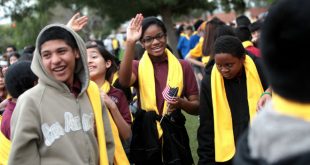Chelsey Nelson, a Christian photographer and blogger in Kentucky, doesn’t want to provide services for same-sex “weddings” and sued the city of Louisville to stop enforcement of a so-called anti-discrimination ordinance.
Nelson won in lower court, but the city appealed to the U.S. Court of Appeals for the Sixth Circuit. The ordinance would force Nelson to take photographs and write blog posts supporting a view of marriage she opposes. She faces government investigations and fines if she continues to operate her business.
Nelson asked the court to rule in her favor in light of the Supreme Court’s ruling in another Christian business owner’s favor.
“The law requires me to become a spokesperson for the government’s currently favored view of marriage, rather than my own biblically informed views,” she said.
The high court in June ruled 6-3 in 303 Creative v. Elenis that a public-accommodation law to compel an artist to speak or stay silent violated the Free Speech Clause of the First Amendment.
The plaintiff in that case, web designer Lorie Smith, also believes what the Bible teaches about marriage and sexuality — that marriage is the God-ordained union between one man and one woman, and homosexuality is a sin. She wanted to expand her business to weddings, but she’d also have to provide services for same-sex “weddings.” She sued to stop enforcement of a Colorado anti-discrimination ordinance.
Alliance Defending Freedom (ADF) represents both women, and Smith’s victory gives Nelson and other Christian business owners hope. From ADF:
“Free speech is for everyone. The U.S. Supreme Court recently affirmed in 303 Creative v. Elenis that all artists have the freedom to create messages that align with their beliefs without fear of government punishment,” said ADF Senior Counsel Jonathan Scruggs, vice president of litigation strategy and the Center for Conscience Initiatives, who will argue before the court on behalf of Nelson.
In the video below, Nelson talks about the First Amendment and her business. She specializes in wedding photography and blogging. Nelson said she works with everyone, “regardless of who they are,” and she always pays attention to the message her artwork communicates. That is her focus, not who asks for the artwork.
But there are some messages she “cannot express, no matter who requests them.” The First Amendment guarantees her freedom to choose which events and ideas to celebrate and promote, Nelson said.
 CURE News and Clergy Blog News and Commentary for Christians
CURE News and Clergy Blog News and Commentary for Christians



